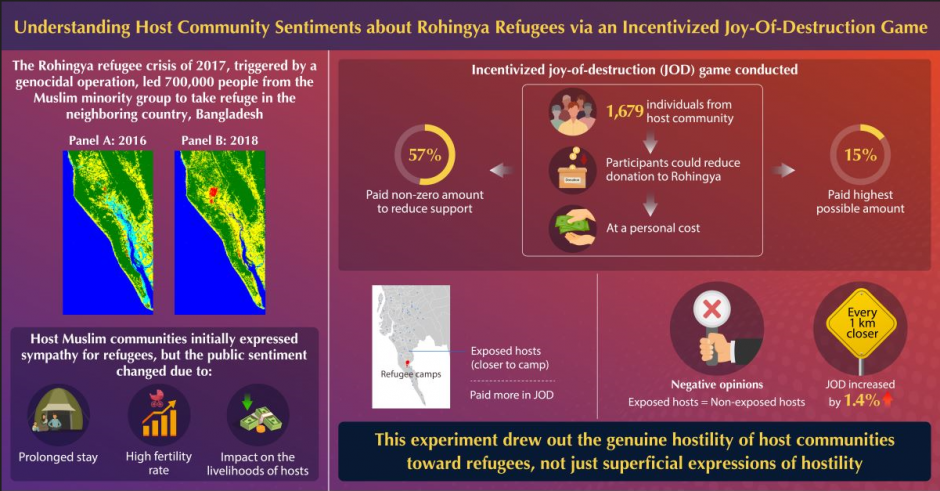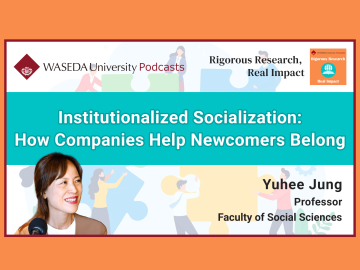Joy-of-Destruction Game to Uncover Sentiments of Host Communities Toward Rohingya Refugees

For the first time in history, a 2022 United Nations High Commissioner for Refugees (UNHCR) report found that over 100 million people were forcibly displaced from their places. This has led to extensive studies on the socio-economic changes in the ecosystems of host countries.
Studies have found that a huge influx of refugees into a country can drive up the cost of essentials, lead to a faster depletion of natural resources due to increasing demand, and significantly lower the wages for host communities owing to a surplus of unskilled labor. It has also led to a disparity in resource distribution with organizations prioritizing refugees over host communities. These instances give rise to negative sentiments among the hosts towards the refugees.
A recent Economic Development and Cultural Change study, led by Ryo Takahashi from Waseda University, investigated the impact of the Rohingya refugee crisis of 2017. A genocidal operation in Myanmar led over 700,000 people to flood into the neighboring country Bangladesh. The were initially empathetic but eventually started developing negative sentiments due to the overstaying of the refugees and the impact they had on the socio-economic conditions of the host communities.
The researchers measured the level of hostility of the host community toward Rohingya refugees with the help of an incentivized joy-of-destruction (JOD) game, where the participants could reduce the donation allocated for supporting Rohingya refugees but would have to bear a personal cost. As the decision to reduce support for Rohingyas had no monetary benefits, the researchers interpreted the amount paid by the participants as the sentiment of hostility towards the refugees.
The JOD games revealed that more than half of the participants were on board for reducing the donation amounts of the refugees at a personal cost. The researchers also found that the closer the participants were to the refugee camps (exposed households), the higher they paid to reduce the donations. For every kilometer closer to the refugee camps, the amount paid for the game saw a 1.4% jump. The researchers also found that even though further or less exposed homes paid lower amounts in JOD, they shared negative opinions similar to the exposed households.
Unlike traditional opinion surveys where the responses obtained might be superficial, the results of this experiment elicited genuine feelings of hostility towards the Rohingyas by the host communities. Further studies into this field could help in the development of strategies for better social cohesion among hosts and refugees.
About Dr. Ryo Takahashi
Dr. Ryo Takahashi is an Associate Professor at the Faculty of Political Science and Economics, School of Political Science and Economics, Waseda University. He earned a Ph.D. in International Studies from The University of Tokyo. He received the Dean’s Award from the Graduate School of Frontier Sciences, The University of Tokyo, Japan for his Ph.D. dissertation. Currently, his h-index is 9 with 16 publications and over 280 citations under his name. Dr. Takahashi’s current areas of research include economic policy, developmental and environmental economics, econometrics, and spatial information systems.








